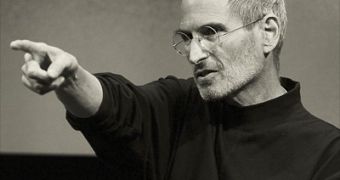A new analysis from marketing intelligence firm IHS iSuppli says that “no matter how successfully Jobs seeded Apple with his genius, his spark may prove irreplaceable over the long term.”
Not that IHS has produced a particularly original theory, but their extensive report does make an informative read.
For instance, the research firm appropriately points out that Apple’s success relied not on targeting the most potent of competitors trying to defeat them, but on picking the right battles.
Steve Jobs himself said this at an All Things D conference as he sat next to his biggest rival, Bill Gates.
“Focus has been key to Apple’s success, with the company’s strength relying on having a clear vision of what Jobs wanted to do—and avoiding what he didn’t want to do,” reads the report.
Lee Ratliff, principal analyst, broadband and digital home for IHS, observed that Jobs’ mind could not be cluttered by stuff like how much the investors were going to make off Apple’s products.
Instead, Jobs focused on shaping the world around him in accordance with his vision, which he always considered right.
“Jobs didn’t care about quarterly reports, and he didn’t care what critics and the media said,” said Ratliff. “He wasn’t paying attention to them, but he cared about implementing his vision. The force of his personality in this regard was enormous.”
Trying to emphasize Jobs’ ability to foresee the whole, IHS analysts say Apple didn’t really invent the personal computer, but that they did reinvent how people interact with them. This statement, however, is debatable.
Looking at the Apple without Jobs, IHS analysts believe the company’s biggest inheritance “may be the successful corporate culture he left behind.”
The assertion here is not “may be” but “certainly is”, if you ask any Apple pundit. “Based on Jobs’ track record, Apple may continue in its success, at least in the near term,” says IHS.
“However, it’s debatable whether Jobs’ vision can fuel Apple’s success for many years in the future,” the firm adds, offering Henry Ford as an example of what might happen without a true visionary at the helm.
Jagdish Rebello, principal analyst, communications and consumer electronics at IHS believes “The company must come up with new revolutionary products to maintain its lead.”
Braverman chimes in to assert that “While there are clearly very smart people at Apple, I question whether anyone can envision and realize social and behavioral change the way that Jobs did. Without Jobs at the helm, Apple’s massive margins have got to wane at some point.”

 14 DAY TRIAL //
14 DAY TRIAL //